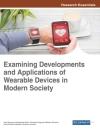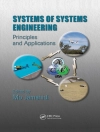Examines how information technologies may be shifting power and authority away from the state.
Returning to the fundamentals of political science, namely power and governance, this book studies the relationship between information technologies and global politics. Key issue-areas are carefully examined: security (including information warfare and terrorism); global consumption and production; international telecommunications; culture and identity formation; human rights; humanitarian assistance; the environment; and biotechnology. Each demonstrates the validity of the view now prevalent within international relations research-the shifting of power and the locus of authority away from the state. Three major conclusions are offered. First, the nation-state must now confront, support, or coexist with other international actors: non-governmental and intergovernmental organizations; multinational corporations; transnational social movements; and individuals. Second, our understanding of instrumental and structural powers must be reconfigured to account for digital information technologies. Finally, and perhaps most importantly, information technologies are now reconstituting actor identities and issues.
Innehållsförteckning
List of Figures and Tables
Preface
Acronyms
Important Terms
I. Introduction: Information Technologies and the Changing Scope of Global Powers and Governance
J. P. Singh
2. Global Networks and Their Impacts
Jonathan Aronson
Part I: The Changing Scope of Power
3. Public Eyes: Satellite Imagery, The Globalization of Transparency, and New Networks of Surveillance
Karen Litfin
4. Informational Meta-Technologies in International Relations, and Genetic Power: The Case of Bio-Technologies
Sandra Braman
Part II: The Changing Scope of Power and Governance
5. Circuits of Power: Security in the Internet Environment
Ronald J. Deibert
6. The Global Political Economy of Wintelism: A New Mode of Power and Governance in the Global Computer Industry
Sangbae Kim and Jeffrey A. Hart
7. New Technologies and Consumption: Contradictions in the Emerging World Center
Edward Comor
Part III: Governance in Telecommunications
8. Capitalism, Technology, and Liberalization: The International Telecommunications Regime, 1865–1998
Mark W. Zacher
9. Understanding Shifts in the Form and Scope of Telecommunications Governance: Canada and the United States in the 20th Century
Stephen D. Mc Dowell
10. Negotiating Regime Change: The Weak, the Strong, and the WTO Telecom Accord
J. P. Singh
Conclusion
11. Information Technologies and the Skills, Networks, and Structures that Sustain World Affairs
James N. Rosenau
List of Contributors
Index
Om författaren
J. P. Singh is Assistant Professor at the School of International Service, American University.












